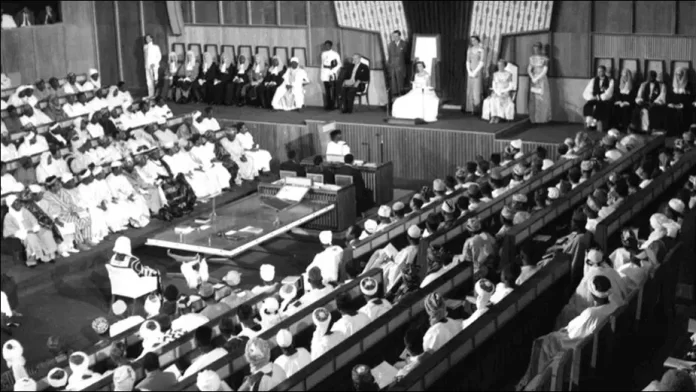A bill proposing Nigeria’s transition from a presidential to a parliamentary system of government has passed its second reading in the House of Representatives.
The bill was among 31 constitutional amendment proposals debated during Thursday’s plenary session, presided over by Deputy Speaker Benjamin Okezie Kalu.
The proposed legislation, titled “A Bill for an Act to Alter the Provisions of the Constitution of the Federal Republic of Nigeria, 1999, to Provide for the Office of the Prime Minister as Head of Government and the Office of President as Head of State and to Provide for a Framework for the Mode of Election to the Said Offices and for Related Matters (HB.1115),” is sponsored by House Minority Leader Kingsley Chinda and 59 other lawmakers.
If passed, Nigeria will return to a parliamentary system where the Prime Minister, elected by lawmakers, will hold executive power, while the President will serve as a ceremonial Head of State.
This was the Nigerian governance arrangement at independence in 1960 until 1966
Reasons for the Proposal
The push for the parliamentary system stems from concerns about the effectiveness of the presidential system. Supporters argue that the high cost of governance under the presidential system reduces funding for essential sectors like healthcare, education, and infrastructure.
Abdussamad Dasuki, speaking on behalf of the sponsors, stated that despite multiple amendments, the presidential system has failed to address Nigeria’s challenges. He noted that excessive executive power, lack of accountability, and high government spending are key problems.
“Over the years, the imperfections of the presidential system of government have become glaring to all, despite several alterations to the constitution to address the shortcomings of a system that has denied the nation the opportunity of attaining its full potential,” Dasuki said.
He added that the parliamentary system, which Nigeria used during its First Republic, ensured more direct accountability since lawmakers held both executive and legislative powers. The system, he argued, would make governance more responsive and cost-effective.
“For six years while it was in operation, the parliamentary system worked for the country,” Dasuki added. He and other supporters believe that returning to this model would improve governance and reduce unnecessary government expenses.
In February 2024, 60 lawmakers introduced three separate bills aimed at transitioning Nigeria to a parliamentary government by 2031. These include HB.1115, HB.1116, and HB.1117, all proposing changes to the 1999 Constitution.
If approved, this transition would mark a significant shift in Nigeria’s political structure, affecting how leaders are elected and how power is distributed.
Despite its merits, the parliamentary system survived only six years in Nigeria, ultimately leading to a crisis in Western Nigeria and snowballing into a bloody three-year war in which over three million died in Eastern Nigeria.
Like 👍, Comment, share this article, and Follow us on our social media handles.








